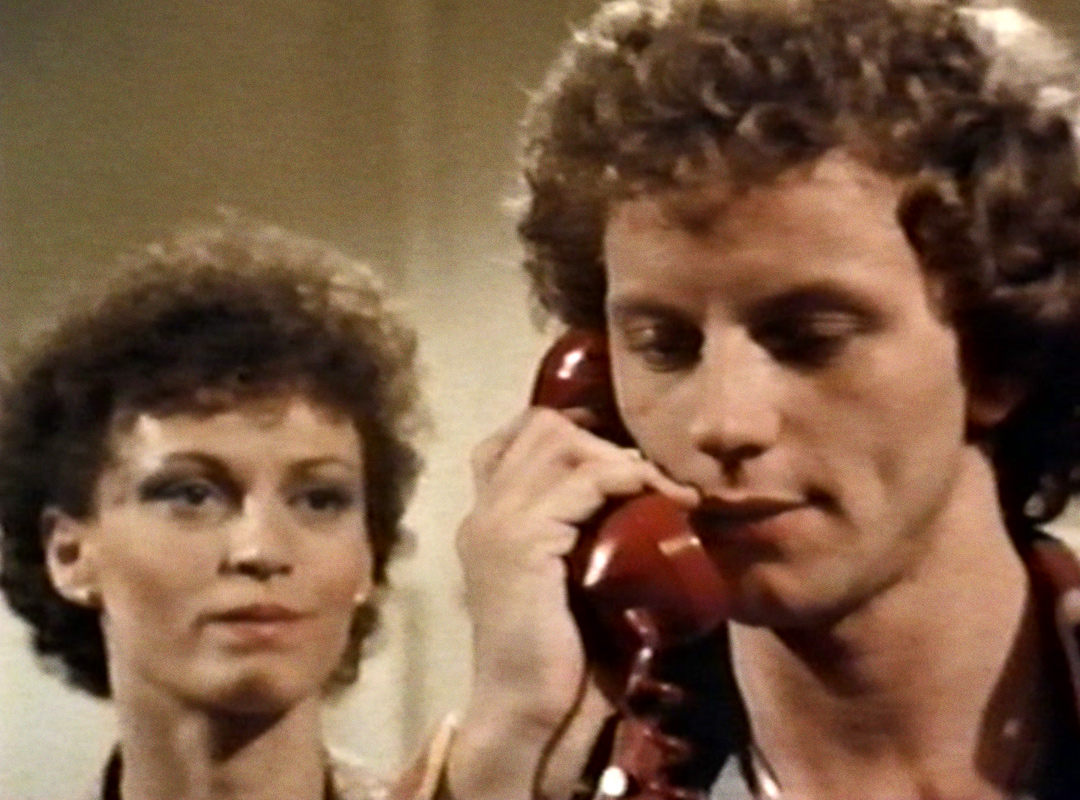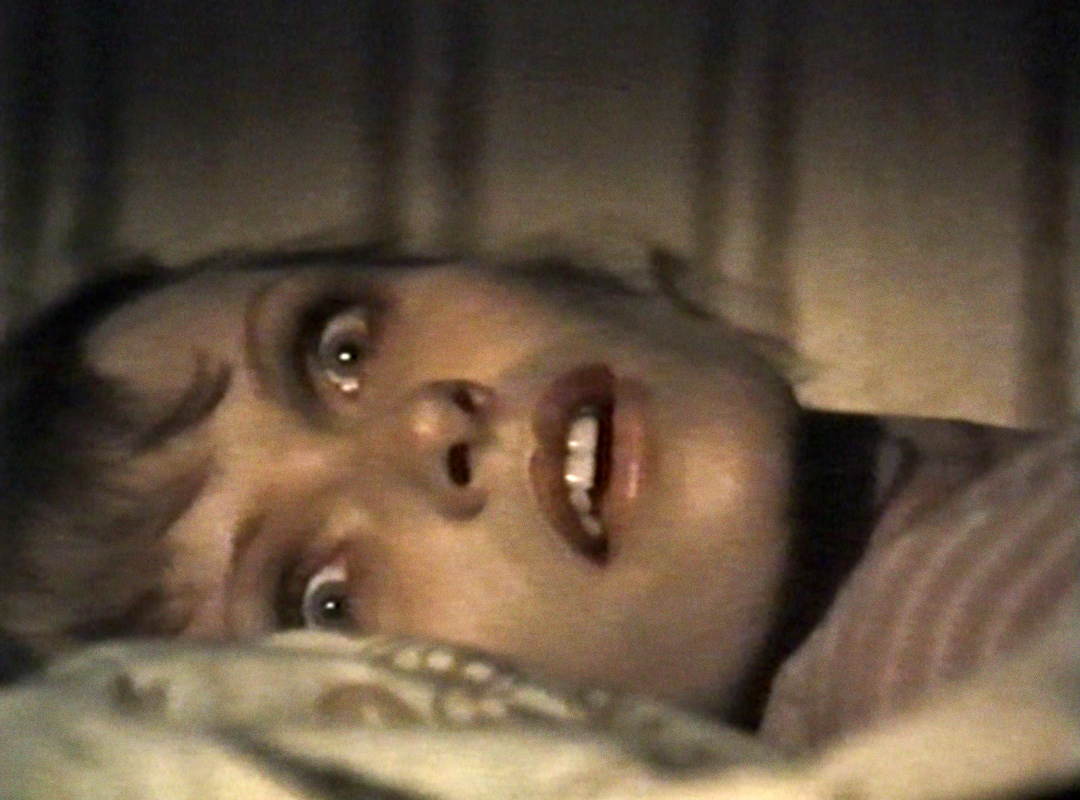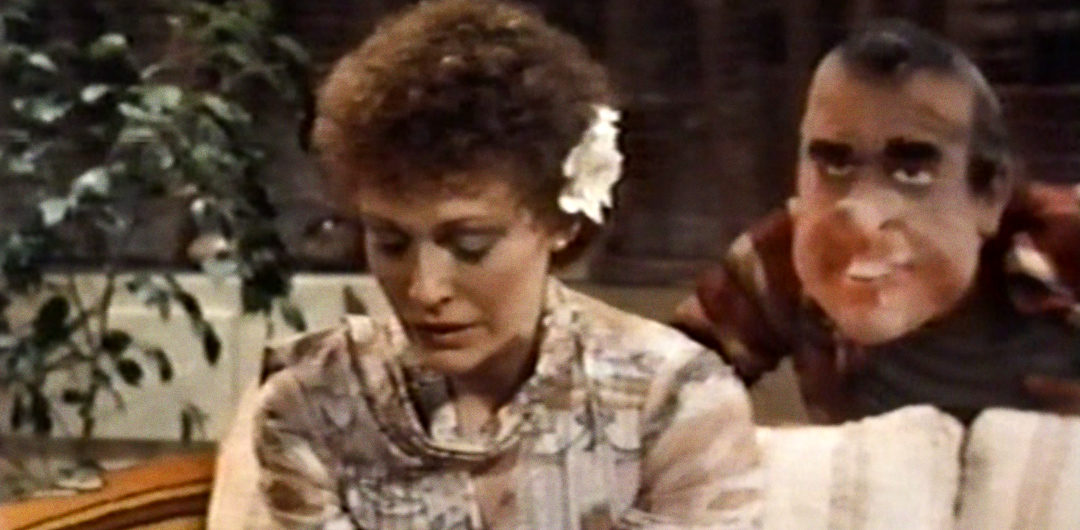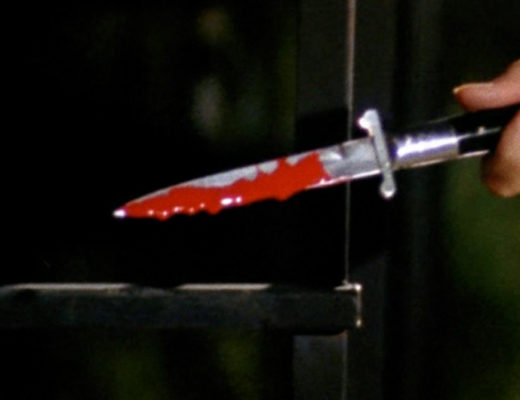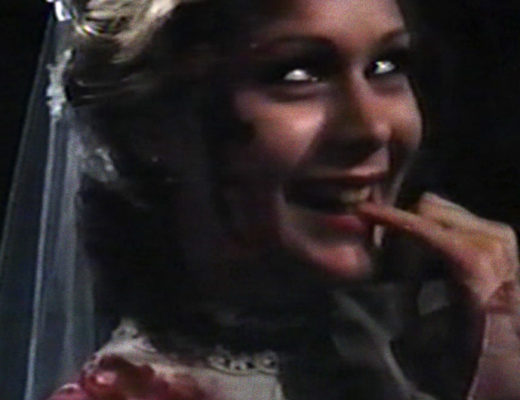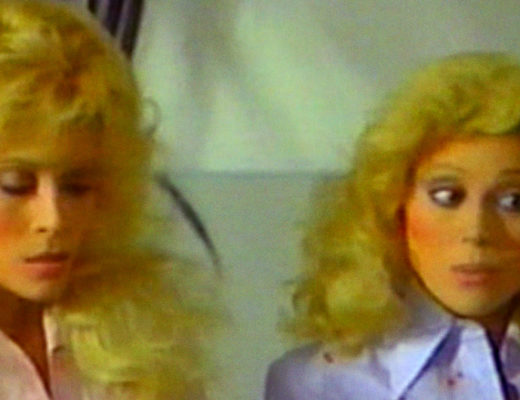Let’s get dark.
You know what’s great about Canadian ultra-obscurities? They’re always dependable. Whether setting out to mine luscious delirium (Things), debilitating gloom (Deadline), or concentrated shittiness (Survival 1990), our Great White Northern friends consistently take it to the limit, a fact which finds the engaging, made-for-TV One Night Stand in perfect company. This is a film consumed by limits. Psychological. Sexual. Emotional. Literal. Consequently, foresight is impossible — for both the film and its audience. There’s the sofa bed. Who has the knife?
It’s Daisy’s birthday. She hates cake. She likes disco-pop. Stood-up by her married lover, Daisy decides to hit the clubs and live it up. Enter Rafe. Rafe is an unemployed singer-songwriter who, as if by magic, finds himself sharing Daisy’s cab, then her hi-rise apartment, then her sofa bed. But before the two can consummate their casual tryst, the phone rings. Rafe wanders through some neighborly sex games. Daisy hits “play” on one of Rafe’s demo tapes. Anger bursts, then vanishes. A Richard Nixon mask appears. Suddenly, the following exchange occurs:
“Why were you in prison?”
“I murdered a girl.”
One Night Stand is a small-scale character study which finds fascination in psychological damage and socio-sexual mores. Although entirely dialogue-based, emotions never sit still. Unease is a constant. The mood jumps from romantic schmaltz to grim anxiousness to shared comfort in a matter of seconds. Characters are well-formed, believable, and continually ambiguous, while a focus on inanimate objects, and the relation to their animate counterparts, provides a constant state of odd flux. We never know what’s coming. We never want to know what’s coming. And that’s what makes this film great. Great, but not superb.
Although One Night Stand contains more foreboding heft than the average TV movie, it still looks, sounds, and feels like a TV movie. Given director Allan King’s early cinéma vérité coups (1967’s Warrendale and 1969’s A Married Couple), that’s a bit of a drag. With some handheld vitality and a looser sense of composition, the film’s realistic subject matter would gain a stunning complement. As it is, the rigid presentation simply furnishes an intuitive script and two terrific performances. That’s certainly an accomplishment unto itself. Unfortunately, it’s not enough to battle the effects of an aloof camera on an eternal cigarette break.
One Night Stand surprised me. It’s a pleasantly grim, tense, and intelligent character study which keeps you in the dark. Unfortunately (in this case), it’s also a TV movie — one which rejects its technical constraints, rather than working with them. Enjoy it, but don’t hail it.
